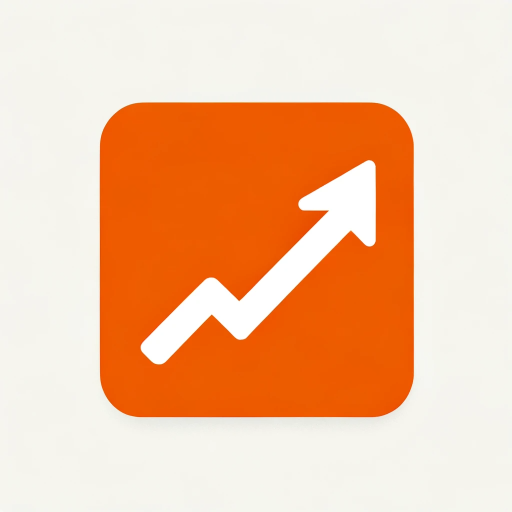Scientific Research AI-AI tool for research tasks
AI-powered assistant for scientific research.
How can I improve the efficiency of my scientific literature review?
I need help formulating a solid hypothesis based on existing data.
Can you suggest an experimental design for my next study?
Related Tools
Load More
Medical Research
I simplify complex medical research, highlighting key points and sources.

Research AI
Ask me about any company, topic, or person and I help you research them (web powered)

Academic Researcher Assistant
An Academic Researcher specializing in scholarly inquiry and scientific investigation (Version 2.0)

Researcher
Research people and companies to prepare for interviews and meetings.

Therocial Scientist
I am a digital scientist skilled in Python, here to assist with scientific and data analysis tasks.

Boost Research
Expert dans l'exploration approfondie de sujets divers.
20.0 / 5 (200 votes)
Introduction to Scientific Research AI
Scientific Research AI is a specialized tool designed to assist researchers, scientists, and academics in various stages of their work, from hypothesis generation to data analysis and scientific communication. Its primary purpose is to streamline and automate routine research tasks, allowing users to focus on more complex aspects of their research. By leveraging AI and machine learning, it can rapidly access and synthesize vast amounts of scientific literature, generate data-driven insights, and assist in experiment design. The tool's versatility makes it applicable across a wide range of scientific fields, from chemistry and biology to physics and engineering. For example, a materials scientist could use the tool to identify promising compounds for energy storage by analyzing current research and generating predictive models.

Main Functions of Scientific Research AI
Access and Synthesize Information
Example
A researcher studying gene therapy needs up-to-date information on the latest advancements. Scientific Research AI can search relevant scientific databases, extract key findings, and summarize complex research articles, enabling the researcher to quickly understand the latest breakthroughs without reading hundreds of papers.
Scenario
A biologist researching CRISPR technology can use the tool to locate and summarize the most recent studies on gene-editing applications in cancer treatment. The AI delivers concise summaries, saving the researcher time and providing actionable insights for experimental design.
Hypothesis Formulation
Example
In a study exploring potential drug treatments for Alzheimer's disease, a neuroscientist can input preliminary data into the AI. Based on known biochemical pathways and similar research, the AI suggests testable hypotheses about which compounds might interact with the disease mechanism.
Scenario
In neuroscience, the AI could analyze previous studies on amyloid plaque buildup and propose hypotheses about the effect of certain proteins in preventing neural degradation. This allows the researcher to focus on experiments that have a higher chance of success.
Data Analysis and Visualization
Example
A team conducting a clinical trial on a new vaccine can input their raw data into the AI. It performs statistical analysis, checks for correlations, and generates visualizations like graphs and heat maps, helping the team identify patterns in patient responses to the vaccine.
Scenario
In epidemiology, the AI might analyze infection rates during a pandemic, providing real-time data visualizations to show trends and predict future outbreaks. This allows public health officials to make informed decisions based on data patterns identified by the AI.
Ideal Users of Scientific Research AI
Academic Researchers
Professors, post-doctoral researchers, and PhD students benefit from using the AI to accelerate literature reviews, develop novel hypotheses, and analyze complex datasets. By automating time-consuming tasks, the AI allows these users to focus on innovative research and publications. For instance, a professor working on climate change can use the tool to track data trends in temperature fluctuations across decades, providing insights for policy recommendations.
R&D Professionals in Industry
Scientists working in pharmaceutical companies, biotechnology firms, or materials science industries use the AI to quickly evaluate experimental data, find new applications for existing technologies, and optimize product development. An example would be a pharmaceutical researcher using the tool to identify new molecular targets for drug discovery by analyzing patterns in biological data, shortening the time to market for new treatments.

How to Use Scientific Research AI
Step 1
Visit aichatonline.org for a free trial without login, also no need for ChatGPT Plus.
Step 2
Identify the specific research task you need help with, such as information retrieval, hypothesis formulation, or data analysis.
Step 3
Input detailed, specific queries or research objectives into the platform to get tailored insights and analyses relevant to your work.
Step 4
Refine your queries based on initial results, and use AI-generated hypotheses, suggestions, or summaries to guide your research process.
Step 5
Leverage data analytics and visualization tools to analyze experimental data and write scientific reports or manuscripts.
Try other advanced and practical GPTs
Frank the Sports Analyst
AI-powered sports analysis for bettors.

Landing Page Optimizer GPT
AI-Powered Landing Page Optimization

Writing Assistant
Enhance your writing with AI.

MatPlotLib Assistant
AI-powered visualization for your data
Cinematic Visualizer
AI-powered visuals for creative projects

Visualize It 그림생성
Transform your ideas into stunning visuals with AI.

● Legible Bot v2.0 Public
AI-powered proofreading and readability optimization.

Allocator
Master U.S. budgets with AI-powered insights.

Secretary-General of You
AI-powered task management for calmer days.

mj real prompt generator
Empower your creativity with AI-generated prompts.

Teaching Assistant
AI-driven learning support for students

Svelte Expert
AI-powered guidance for Svelte developers

- Data Analysis
- Literature Review
- Hypothesis Testing
- Experiment Design
- Manuscript Drafting
Q&A: Scientific Research AI
How can Scientific Research AI assist in academic research?
Scientific Research AI can help with literature searches, summarize findings, propose hypotheses, and even assist in designing experiments. It also provides data analysis tools and helps in drafting scientific reports.
Can Scientific Research AI help with data visualization?
Yes, Scientific Research AI can generate data visualizations such as graphs and charts to help researchers analyze and interpret their experimental results more effectively.
Is it suitable for writing research papers?
Yes, Scientific Research AI assists in drafting and refining research papers, offering suggestions for structure, scientific terminology, and ensuring proper citation of sources.
What are the prerequisites for using Scientific Research AI?
No special prerequisites are required. Basic understanding of your research domain and clear objectives are enough to use the tool effectively. It simplifies tasks for researchers at all stages.
Can I use it for multidisciplinary research?
Absolutely. Scientific Research AI supports a wide range of scientific fields, from biology and physics to engineering and social sciences, making it ideal for multidisciplinary research projects.